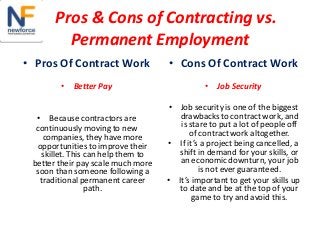
Nonprofits are a unique type of business. They do not focus on profit, but instead the public good. Nonprofits do not have to pay income taxes like for-profit businesses. This allows them to focus on their mission and gives their employees the opportunity to feel great about their work.
Nonprofits can prosper with the right IT support. They will be more efficient, have a greater impact on their mission and be more competitive. Many nonprofits struggle with their IT administration. Unoptimized technology systems can cause frustration for nonprofits, whether it's because of budgetary constraints, internal bandwidth, or expert knowledge.
It is important to find an IT partner who can understand the needs of nonprofits. An IT support provider with experience in this area can ensure your technology systems run at their best.
IT Security for Nonprofits. Safeguard your Contributor and Donor data
Nonprofits face one of the greatest challenges: maintaining data security. With hackers becoming more prevalent, it is vital that nonprofits invest in data security solutions. Multi-factor authentication is also an option, as well as phishing prevention training.

A good IT services team is crucial for your organization's reputation and ensuring that donors and contributors have confidence in you. It is vital to have an IT team that can help you identify weaknesses in your IT infrastructure as well as offer solutions.
IT professionals who can quickly respond to emergency IT issues are also essential. A reliable IT company can respond quickly to any IT emergency. This can save your charity the cost of having additional staff available in case of an emergency.
IT support for nonprofits can be a crucial part of keeping your organization on track. IT support can increase productivity, lower costs, and help keep donor and contributor data secure.
Your IT support group should be able offer IT services to all your employees, mobile devices included. This is especially important if you have staff who work remotely or at home. An IT support team that is competent should be able provide 24/7 access to your office, even on weekends.
Managed backup solutions are essential for nonprofits that rely on sensitive customer or donor data. This will ensure you have the ability to quickly recover your data.

Nonprofits are a very important part of our society and should be taken seriously. However, as with all businesses, they are susceptible to hackers and data breaches. This is why it's important to have a trusted IT support staff for your nonprofit who will do everything possible to protect your information.
EasyIT's IT staff has been providing exceptional IT support for nonprofits every year since 1998. Get in touch with us today for a free consultation to learn how we could make your nonprofit's IT run smoothly.
FAQ
What should I expect from my consultant
Within a few days of selecting your consultant, you can expect to hear back. They will typically ask for information about the company, such as its mission, goals. products and services. budget. Next, they'll provide a proposal describing the scope and estimated time frame, fees, deliverables or milestones, as well as an estimate of costs.
If all goes according to plan, the two sides will sign a written deal. The type of relationship between them (e.g. employer-employee or employer-independent contractor) will determine the terms of the contract.
If everything goes smoothly, the consultant can begin work immediately. The consultant will have full access to your files and resources. You'll also have access to their skills and knowledge.
Don't assume that someone who is a consultant knows everything. To become an expert in any field you consult, it takes practice and effort. You shouldn't expect your consultant will know everything you need to know about your business.
How is consulting different to freelancing
Freelancers can be self-employed people who provide their services to clients, without the involvement of employees. They charge hourly rates depending on the amount of time spent on a client's projects. Consultants often work for companies or agencies that employ them. Their salaries are often paid monthly, or annually.
Because they have control over their work hours and can set their prices, freelancers are more flexible than consultants. Consultants, however, often have better benefits such as retirement plans, vacation days, and health insurance.
How can I select a consultant?
There are three key factors to be aware of:
-
Experience - How many years of experience is this consultant? Are they a beginner, intermediate, expert, or some other level? Does her resume reflect the knowledge and skills she has?
-
Education - What did this person study in school? Did he/she continue to take relevant courses after graduation? Were there any evidences of this learning in his/her writing?
-
Personality – Do we like this person/person? Would we hire him/her to be our employee?
-
The answers to these questions help determine if the consultant is right for our needs. If the answers are not clear, it may be worthwhile to interview the candidate in person to get more information about them.
How much do consultants earn?
Although some consultants can make more than $100k annually, the majority of consultants earn between $25-$50k. The average consultant salary is $39,000 This includes hourly as well as salaried consultants.
Salary is dependent on experience, location and industry. It also depends on whether the consultant works from home or has a remote office.
Statistics
- On average, your program increases the sales team's performance by 33%. (consultingsuccess.com)
- According to IBISWorld, revenues in the consulting industry will exceed $261 billion in 2020. (nerdwallet.com)
- My 10 years of experience and 6-step program have helped over 20 clients boost their sales by an average of 33% in 6 months. (consultingsuccess.com)
- According to statistics from the ONS, the UK has around 300,000 consultants, of which around 63,000 professionals work as management consultants. (consultancy.uk)
- Over 62% of consultants were dissatisfied with their former jobs before starting their consulting business. (consultingsuccess.com)
External Links
How To
How to Start a Consultancy Company and What Should I Do First
A consulting business is a great way of making money online. You don't have to have any business experience. You can start your own consulting firm by building a website. Once you've built a website, you'll want to use social media platforms such as Facebook, Twitter, LinkedIn, Instagram, Pinterest, YouTube, etc... to get the word out about your services.
These tools will allow you to create a marketing plan which includes:
-
Content creation (blogs).
-
Building relationships (contacts)
-
Generating leads through lead generation forms
-
Selling products (eCommerce websites)
Once you've created your marketing strategy, the next step is to find clients who are willing to pay you for your services. Some people prefer to go through networking groups and events, while others prefer to use online methods such as Craigslist, Kijiji, etc. The decision is up to each individual.
Once you have found clients, you should discuss terms and payment options. You can discuss hourly rates, retainer agreements, flat fees, and other options. So that you are able to communicate clearly during the entire process, it is important to understand what you expect from a client before you accept them.
An hourly agreement is the most common contract for a consulting service. In this case, you agree to provide certain services at a fixed rate each month or week. You might be able, depending on which service you offer, to negotiate a discount. When you sign a contract, make sure you fully understand it.
Next, create invoices and then send them to clients. Invoicing can be a complicated task until you actually attempt it. There are many ways that you can invoice your clients depending on what your preferences are. You can choose to have your invoices sent directly to your clients or to print them and send them. No matter what method you use, ensure it works for your business!
After you've finished creating invoices, you'll want to collect payments. PayPal is popular because it is easy to use, offers several payment options, and most people prefer it. Other payment processors such as Square Cash. Google Wallet. Apple Pay. Venmo.
Once you are ready for payments to begin, you will need to open bank accounts. You can track income and expenses separately by having separate savings and checking accounts. Setting up automatic transfers into your bank account is also helpful when paying bills.
It may seem overwhelming to start a consultancy, but once it is done correctly, it becomes second-nature. For more information on starting a consultancy business, check out our blog post here.
It's a great way for extra income without having to worry about hiring employees. Many consultants work remotely, which means they don't have to deal with office politics or long hours in the office. You have more flexibility than traditional employees because you aren't tied down by work hours.